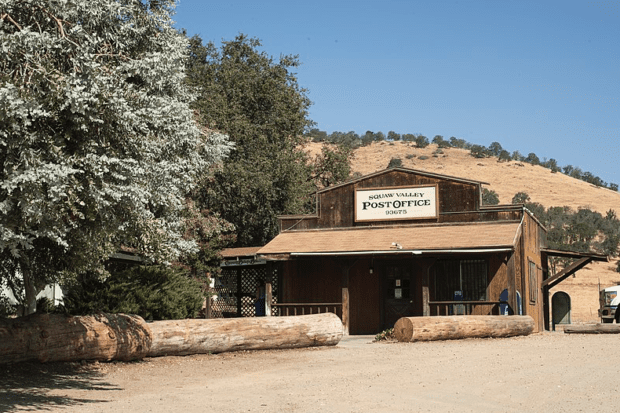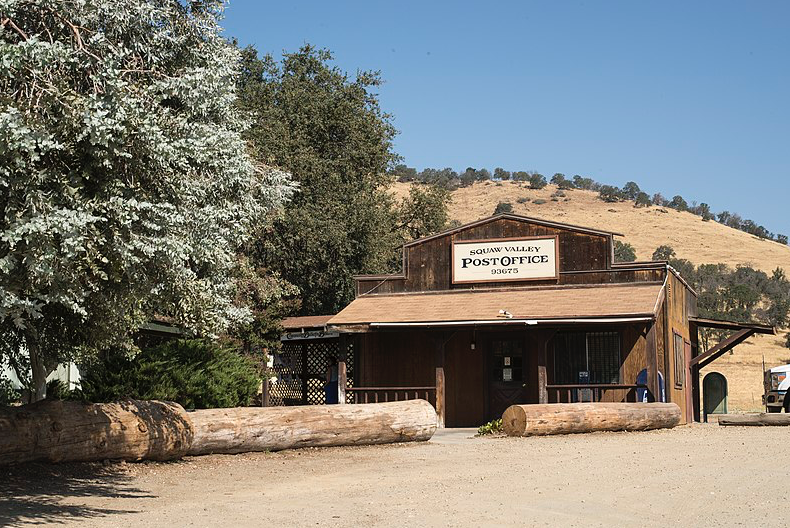
This is an appeal to my Christian brothers and sisters, and anyone else who likes Jesus, to get on board with changing the name of Squaw Valley.
The language of the Hebrew Bible is richly metaphorical. For example, the word for God’s glory is kabod, which literally means heavy or weighty. If you want to talk about God’s glory, you talk about God’s “weightiness.”
Jesus used this idea in a dispute with the religious teachers of his day. He named three “weightier matters of the law”—the most important features of religious law.
Those touchstones were justice, by which he meant basic fairness and caring for all, including the poor and the outcasts of society; mercy, by which he meant kindness and compassion; and faithfulness, by which he meant being trustworthy and honoring commitments.

Justice, mercy and faithfulness dovetailed with three other bedrock principles: loving God, loving your neighbor as yourself and the Golden Rule: “Do unto others what you would have others do unto you.”
As we contemplate changing the name of Squaw Valley, we have some heavy historical matters to think about.
The first is that we non-Natives are total newcomers to the area compared to the local tribes who have occupied this land for something like 10,000 years.
Second, we need to acknowledge that California entered the Union as a “free” state, but in reality, early California was built on killing, enslaving and preventing “Indians” from participating as citizens. Our first governor, Peter Burnett, declared our state’s “final solution” regarding Indians in 1851: “[t]hat a war of extermination will continue to be waged between the two races until the Indian race becomes extinct must be expected.”
What California’s “final solution” looked like:
- During the Gold Rush, many towns paying bounties for “Indian” heads, scalps and ears.
- The U.S. Cavalry butchering a village of 800 Pomo men, women and children at “Bloody Island” (Clear Lake).
- A group of Tumna women throwing themselves off a cliff to their deaths rather than submit to being captured by the U.S. Army and sold into slavery (“Squaw Leap,” Fresno County).
- Banishing and scattering tribes, as happened at Tulare Lake, once the largest body of freshwater west of the Mississippi, which was drained for agriculture (Visalia).
- California officials making “treaties” with Native peoples in bad faith, reneging on promises, then hiding the treaty documents and claiming they didn’t exist.
- Reducing the California tribal population so that only 10% were left.
- Tearing Indian children away from their families and forcing them to go to government-funded, church-run concentration camp–like schools.
- Suppressing tribal languages and cultures in those boarding schools.
- Forcing complete subjugation to the dominant culture, as if our ways are the only ways that should be allowed to exist.
It was a deliberate, violent program of physical and cultural genocide. It was erasure on a monumental level. It was all done so that the land and the riches of the land could be taken for ourselves, no matter how much misery we caused.
How would you feel if some alien invaders who knew nothing about your beliefs and culture “did these things unto” you and your kids?
Regarding this historical record, often non-Native people protest, “I haven’t killed or enslaved any Indians. I shouldn’t be blamed for what bad people did in the past.” Hmm. Yes, but what we’re talking about here is not just irrelevant history that has nothing to do with us. It is trauma that carries over for generations.
Big questions: Was this justice? mercy? faithfulness? loving one’s neighbor?
Bringing us to the present, we now have the opportunity to do a small thing that could make a big difference. It wouldn’t undo the harm done or “make things right.” But it would go some distance in healing a terrible rift.
We can choose to rename Squaw Valley.
Why do it? Our Native American friends tell us that the word squaw is an insulting, humiliating, divisive, racially derogatory term that denigrates Native American women. Every day, they pass the signs with the name squaw, which aggravates their cumulative memory of hurt and loss.
Meanwhile, the arguments against changing the name are extraordinarily lightweight.
- Angry people growling at “outsiders who want to come and tell us what to do.” Hmm. Our local Native people “outsiders”?
- “Just look in a dictionary: squaw means ‘woman,’ pure and simple.” Hmm. Is it really that “pure” or “simple”?
- “We’ve always called it Squaw Valley.” Hmm. Do your people have a history here stretching back 10,000 years?
- “We’ll have to change highway signs and our business cards.” Hmm. Yes. But won’t it be a relatively minor inconvenience compared to what the tribes have been put through?
So whose word should we take as weightier? The word of the naysayers or the word of our Native American brothers and sisters who have survived genocide?
When it comes to changing the name of Squaw Valley, a friend of mine is fond of saying, “What would Jesus do?”
Indeed.
It’s a weighty question.
